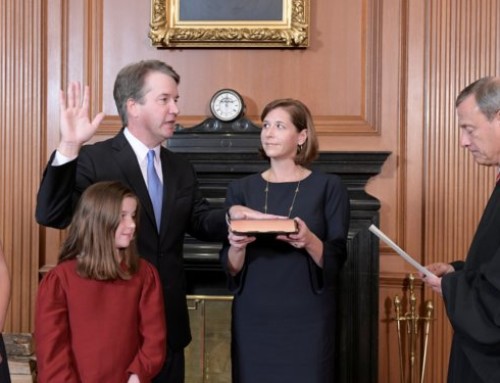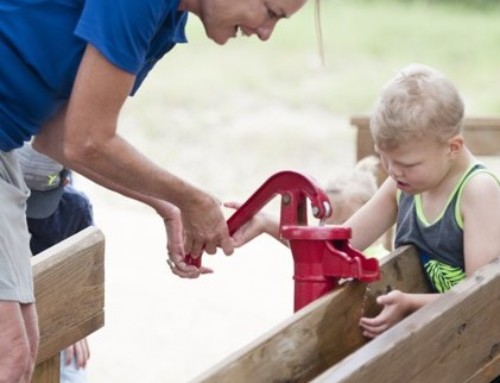Public relations might not offer the same lifesaving, critical aid as a medical doctor or breakthrough drug, but the stories we tell in healthcare can definitely have life-changing consequences.
By Angela Dejene
This article was published in the October 2015 issue of O’Dwyer’s. Click here for the online version.

PR pioneer Ivy Lee once wrote, “I have never been able to find a satisfactory phrase to describe what I do.”
Personally, I also like the credo for our persuasive craft currently being used by McCann Erickson: “Truth Well Told.” PR is an important profession — and dare I say, a demanding one — but it certainly doesn’t rank up there with presidents and prime ministers, or even begin to compare to heroic first responders and emergency room medics whose actions affect, even save lives. Or does it?
Leading the word-wary to water
Getting the truth, however small, to market for any client can sometimes feel very challenging. Many of us in the PR profession struggle to understand the breakthroughs and progress of our clients, let alone to find the right words to express them to the world.
Those of us working with clients in the healthcare sector, however, make a different job of it. So many of the breakthroughs we see streaming out of our industry’s labs, then racing into the hands and toolkits of healthcare providers worldwide, have implications for millions that are so stunning they can be numbing. We struggle to punch past the technicalities to shape a story in human terms that are memorable and effective enough to improve and ultimately save the lives of millions.
Making discoveries, saving lives
Dr. Margaret Phillips is a Professor of Pharmacology at the University of Texas Southwestern Medical Center, located in the world-class medical research capital of Dallas. She leads a research team that recently tested a new drug, DSM265, which offers a promise for curing and preventing malaria. The drug is unique because it demolishes drug-resistant malaria parasites in the blood and liver. It targets the parasites and blocks their ability to replicate.
Malaria affects nearly half of the world’s population, and kills one child every 45 seconds. Dr. Phillips is saving lives.
Melinda Ann French, who grew up in Dallas, was 1982 Valedictorian at the just-girls Ursuline Academy on Walnut Hill Lane. She went on to become a computer programmer in Seattle, long before the world heard about STEM programs to encourage girls in science. Melinda married another math whiz, Bill Gates, and now they’re both changing the world, one disease at a time.
While Dr. Margaret Phillips and her team are in the lab making daily scientific progress, Melinda and Bill, along with their army, have currently brought in $2 billion to countries battling malaria risk, and carrying drugs and insecticides to at-risk populations in Southern Africa and along the Mekong River in Southeast Asia.
A glimmer of hope and progress
As a young woman in London, Donna Berber saw heartbreaking reports of the famine that devastated Ethiopia between 1983 and 1985. During a trip to that nation’s capital, Addis Ababa, a chance encounter with a screaming and medically-disabled boy in an open market convinced her to take action. Donna Berber now lives in Austin, Texas, with her husband Phil. In 2000, they started a foundation called A Glimmer of Hope, which provides health-care, water, education and microloans to thousands across Ethiopia and the Horn of Africa.
I’m inspired by the foundation’s message of hope and progress and share in Donna’s commitment to improving the lives of children and women in Ethiopia by providing resources and opportunities to empower and enable families to create a better life and more secure future.
Stories have consequences
“Ideas have consequences” is a famous meme of the American political classes, reminding us that a notion that seems radical, even unlikely, today can quickly change the world tomorrow.
How about a new meme: “Stories have consequences.”
Just think of Malala Yousafzai, shot in the head and left to die on a school bus in the remotest part of Pakistan, near the Khyber Pass. Her story changed the world, mobilizing millions upon millions of girls who are denied education around the globe.
And we will never forget the image of three-year-old Aylan Kurdi, who washed up dead this summer, vacant eyes still open, lying alone on the tidal sands of a Turkish beach.
The story of Aylan turned the hardened hearts of an entire continent in a matter of days. The Iron Chancellor of Germany broke open the locked gates of her nation never known for its generosity to foreigners. It brought a Pope to his balcony pulpit to scold an entire world religion and snap its 1.2 billion adherents back to its original mission of compassion, caring and asylum. Stories have consequences.
In our world, millions of children go without childhood immunizations. Thousands are suddenly at risk from two cases of polio, resurgent in Mali and Ukraine. Villages and cities worldwide are suddenly devastated by famine, disaster, the lack of clean water or basic sanitation. Newborns die by the thousands in the first week or first day of life be- cause of mothers who cannot nurse them or families who cannot find food and sanitation for any of their children.
The issues of health crisis and lives in peril are in the news feed every day. Too frightening, too numbing, too common to inspire action. Sometimes it may take just a single person to change that world — a scientist achieving a breakthrough in a university lab; a Catholic schoolgirl from Dallas who remembers what the nuns taught her about her social obligations; a fearless girl who takes a bullet but defies her assassins; the lifeless, motherless body of a lost child, gently rocking in the waves on a Mediterranean beach.
We who write the message can also change the world. And change can often come with just one story.




